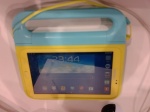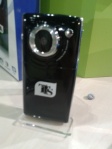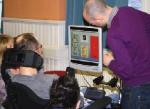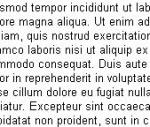For those unfamiliar with BETT, it is the largest educational technology exhibition in Europe. Taking place annually in London, there are over 600 exhibitors including massive companies such as Google, Dell, Intel and Microsoft. The interesting stuff, from an Additional Support for Learning perspective, is generally on the smaller exhibition stands, though there is plenty from the larger manufacturers which may be suitable for those with Additional Support Needs.
I’ve summarised my highlights below. For summary of my tweets during the event, including pictures go to: http://storify.com/FilMcIntyre/fil-s-bett-2014
Tablets
 There were multiple stands showing many different iPad cases, but this one caught my attention. Kensington have a rubbery case called a SafeGrip which surrounds the iPad, but also has a handle. Great for students who struggle with carrying equipment. http://bit.ly/safegrip
There were multiple stands showing many different iPad cases, but this one caught my attention. Kensington have a rubbery case called a SafeGrip which surrounds the iPad, but also has a handle. Great for students who struggle with carrying equipment. http://bit.ly/safegrip
Tech21 make cases from a polymer which adjusts to pressure so should create better resistance to being dropped. They have a range of cases, but more significantly screen covers which protect against impact to the screen (the most vulnerable part of any tablet). https://www.tech21.com/
Intel was showing a ruggedized Windows tablet – The StudyBook- which should stand up to a fair amount of abuse. Significantly the screen was protected. The person on the stand took great delight in repeatedly dropping a large ball- bearing onto the screen. See a video here
 Rather than rely on a case to supply a handle, Samsung have produced a version of their Tab 3, 7 inch Android tablet for education which has a handle built in. The disadvantage? It is bright yellow and blue. http://bit.ly/samsungeducation
Rather than rely on a case to supply a handle, Samsung have produced a version of their Tab 3, 7 inch Android tablet for education which has a handle built in. The disadvantage? It is bright yellow and blue. http://bit.ly/samsungeducation
Software
There are currently two pieces of software designed to support emergent eye-gaze users (Eye-FX and Look to Learn). Inclusive technology were showing previews of their software package – Inclusive Eye Gaze Learning Curve – which comes out later in the year. The first title focusses on Attention and Looking and provides a progression of engaging activities to assess and develop eye-gaze users. http://www.inclusive.co.uk/inclusive-eye-gaze-p6501
Audio Notetaker is a great piece of software from Sonocent. They have now released a version for iOS (iPad/Phone etc.). Called “Recorder” it enables students to record live audio of a lecture and mark the important points as they go along. The result can later be uploaded to the full version of Audio Notetaker for further revision and linking to PowerPoint slides or images. http://www.sonocent.com/en/the_software/recorder/
Other

Since production of the Flip video camera ceased I’ve been looking for an alternative which is as easy to use, but not expensive. TTS have produced one which seems to fit the bill. It feels a bit plasticy, but is simple to use and has a built in USB plug to transfer the content. It also has a 4GB SD card and HDMI output. http://bit.ly/ttscam
Beamz is a very unusual and accessible way to play music. For students who are unable to hold or play a standard instruments, Beamz provides 4 laser beams which, when broken by a hand or object, will trigger sounds from an attached computer. http://thebeamz.com/
Fil McIntyre
Assistive Technologist, The BRITE Initiative







